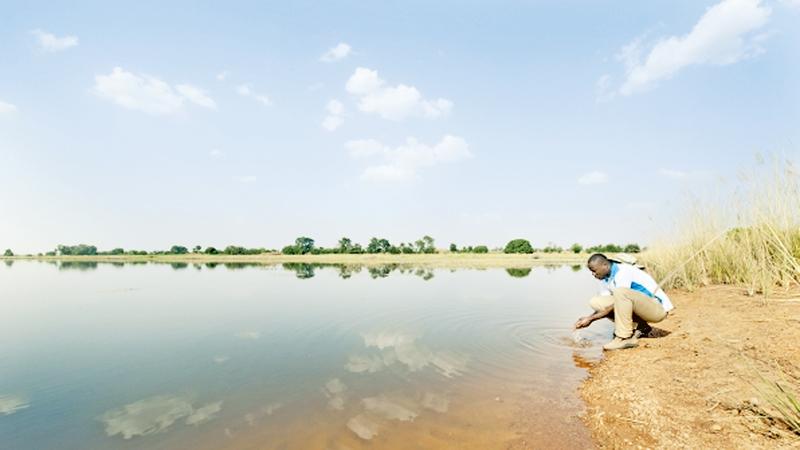
In 2017, countries around the world witnessed plenty of nature’s dark side – its awesome power to wreak havoc on human livelihoods through water-related disasters, especially, droughts and floods.
The New Year will, of course, see more of the same, afflicting major cities and rural areas. But 2018 will also bring important opportunities to reflect and act on nature’s enormous potential to foster development by providing solutions to water challenges.
Options for realizing this potential will be the central focus of a series of major events taking place in 2018. They mark the beginning of the International Decade (2018-2028) for Action – “Water for Sustainable Development,” declared a year ago by the United Nations General Assembly in recognition of the importance of water issues on the international agenda.
The International Water Management Institute (IWMI) and CGIAR Research Program on Water, Land and Ecosystems (WLE), which IWMI leads, will contribute significantly, bringing a wealth of evidence and insights from our global research to key deliberations and decisions on nature-based solutions for water management. New research results will provide the basis of an ongoing communications campaign, aimed at helping build the case to bring nature more fully into national and international development planning and practice.
The campaign will reach a wide audience of stakeholders in water management through our online presence, together with social and mass media engagement, in support of our participation in key events.
As governments and the private sector seek to manage water resources more effectively for economic development, while reducing the threat of water-related disasters, they tend to rely heavily on expensive built or “grey” infrastructure, such as dams, dikes and reservoirs.
While such investments can generate major economic benefits, it has become increasingly evident in recent years that built infrastructure is not sufficient, by itself, to ensure resilience and sustainable growth for everyone. A big part of the problem is that the construction of large dams to generate hydropower and make water more readily available for irrigation schemes often has negative impacts on water-dependent ecosystem services (such as biodiversity and water for fish and livestock) and on the people in downstream rural communities whose livelihoods are closely tied to these services.
Key decision makers can curb those impacts through better management of landscapes, based on a recognition of the valuable ecosystem services provided by natural or “green” infrastructure, such as forests, floodplains and wetlands.
Typically, the focus of conservation initiatives, but rarely seen as important for water security, this natural capital can contribute to development, complementing built infrastructure as a means to foster resilience in the face of climate change and sustainable economic growth. Our research focuses on establishing the value of natural capital, with the aim of strengthening the capacity of institutions to manage water resources in a sustainable and equitable way.
- iwmi.cgiar.org
